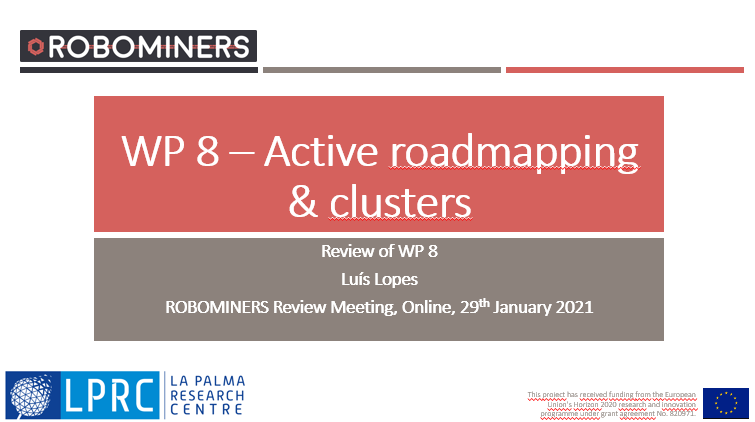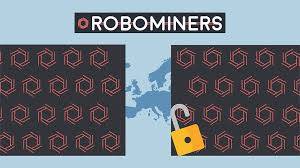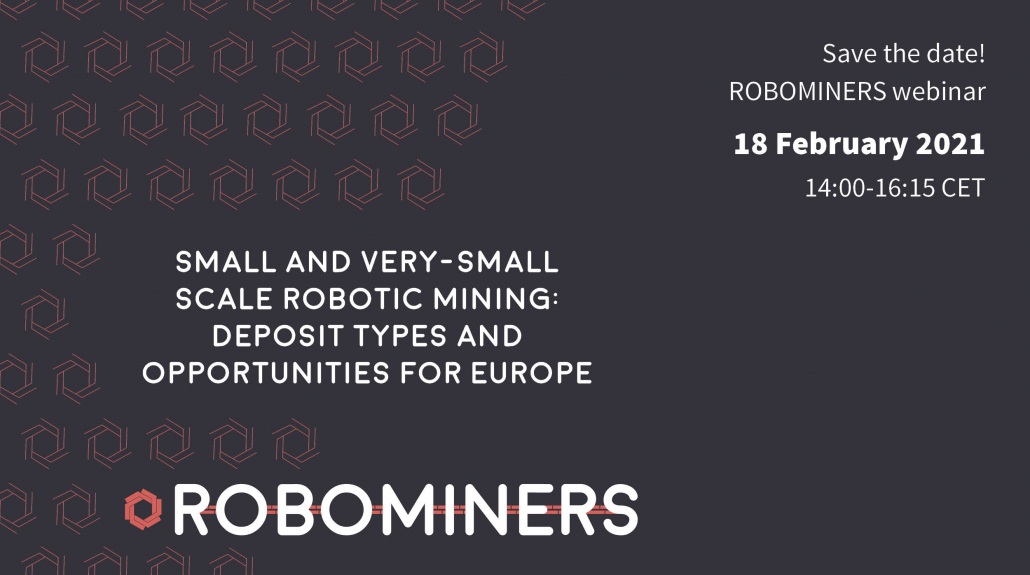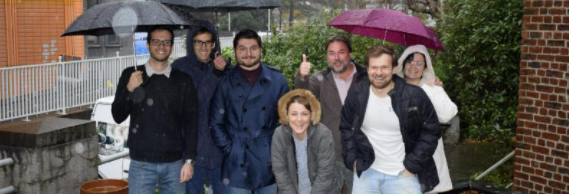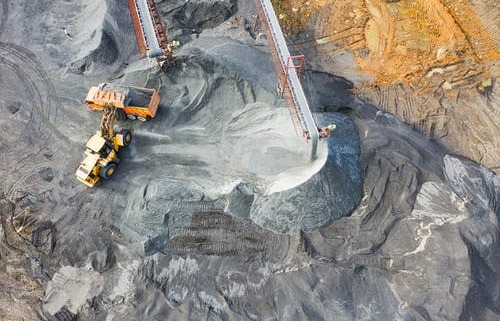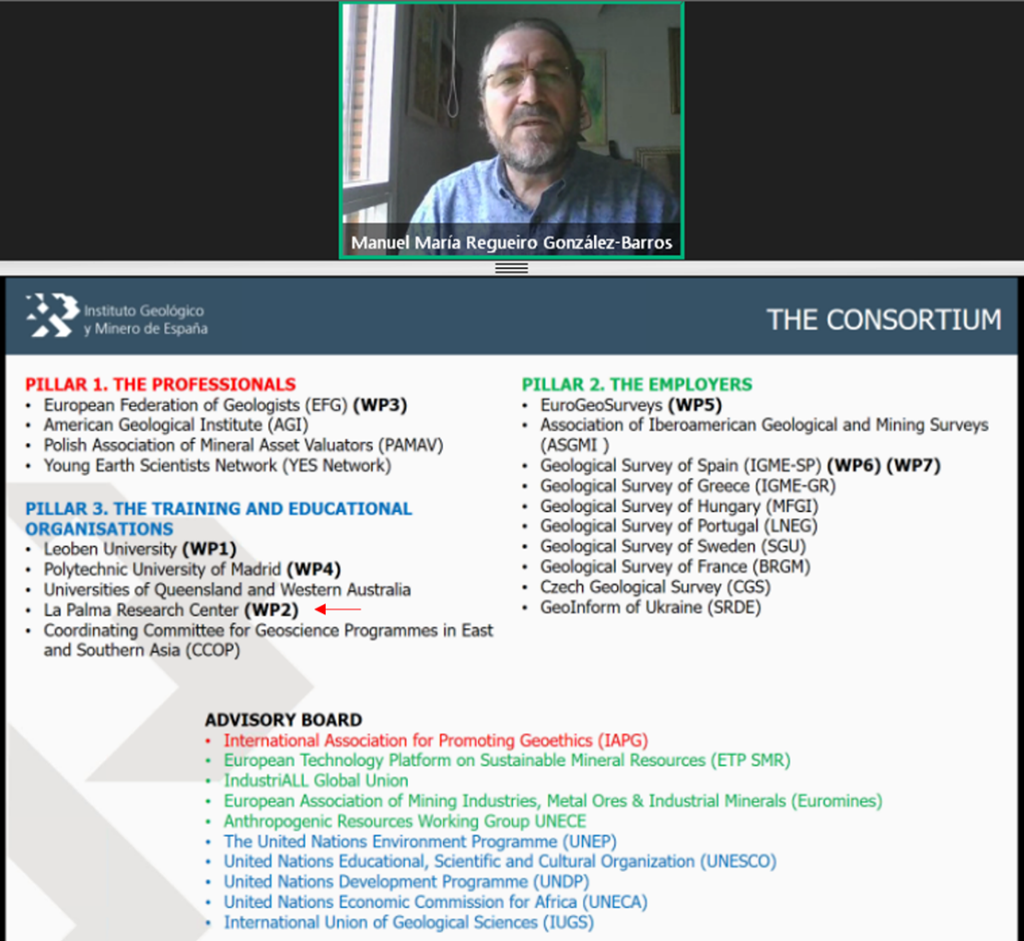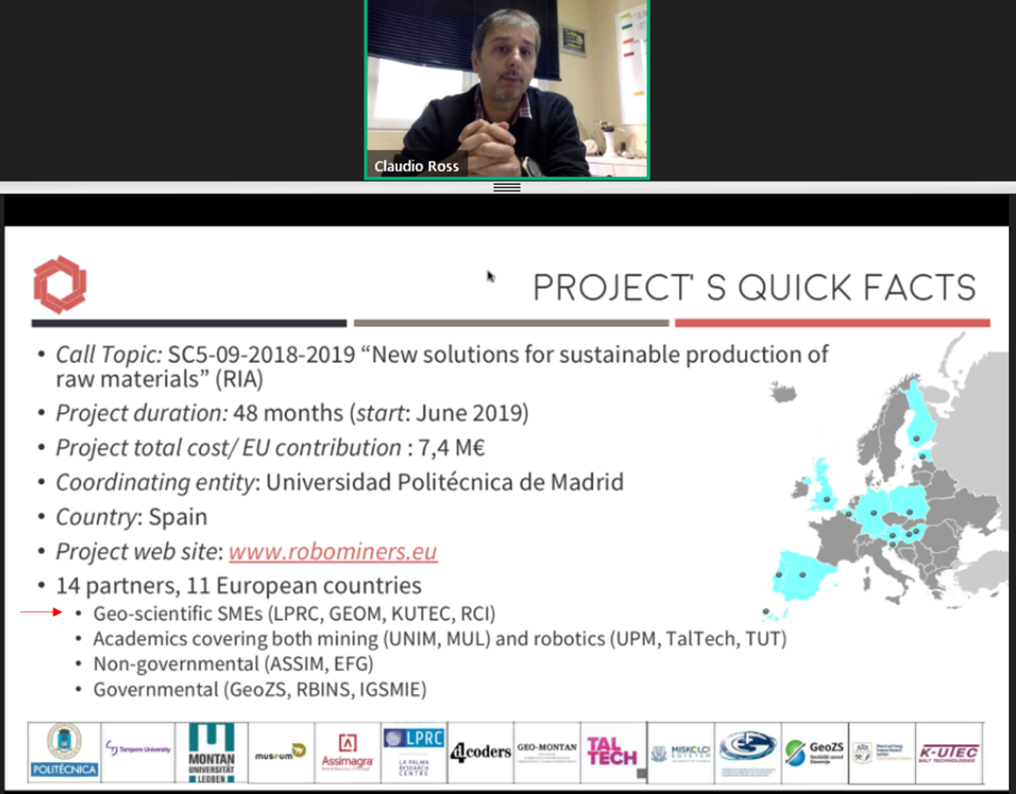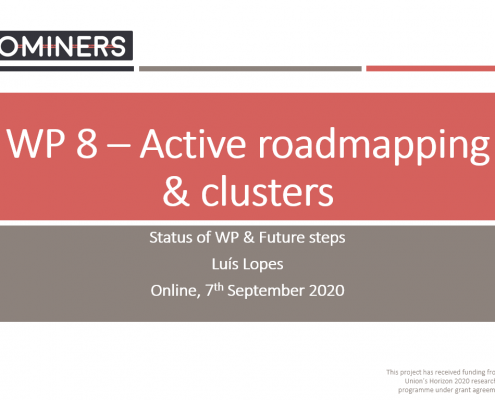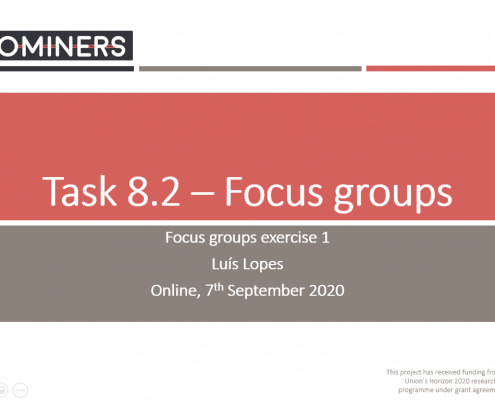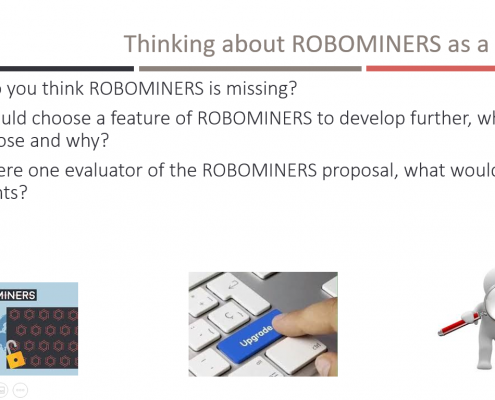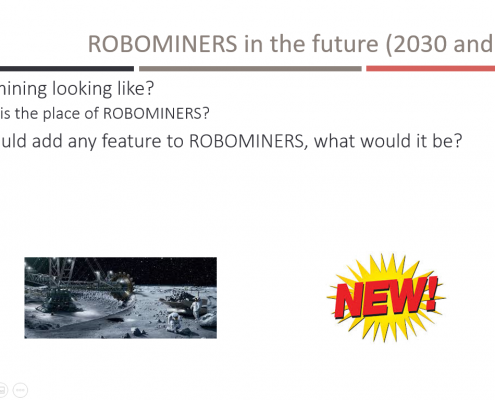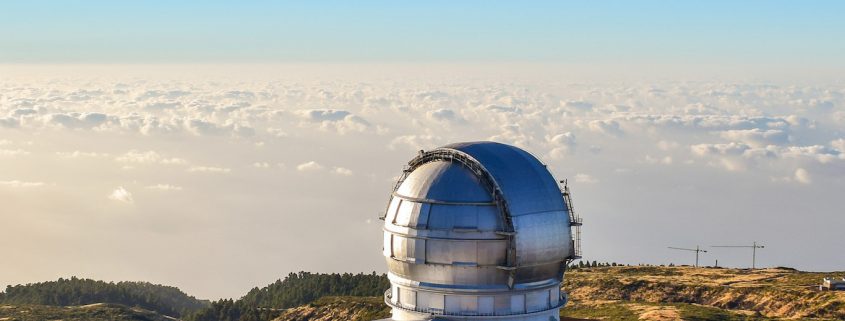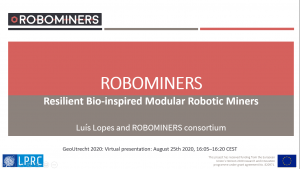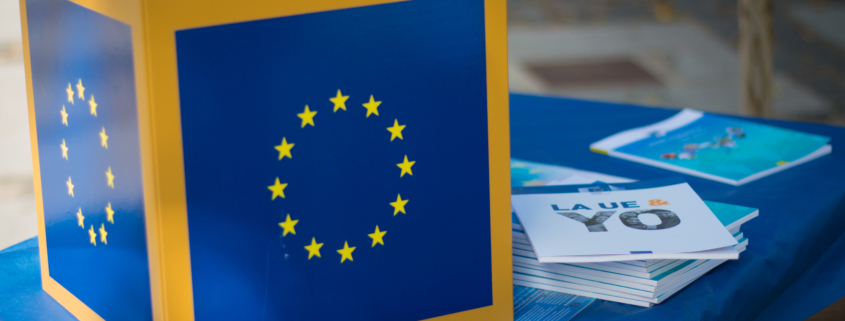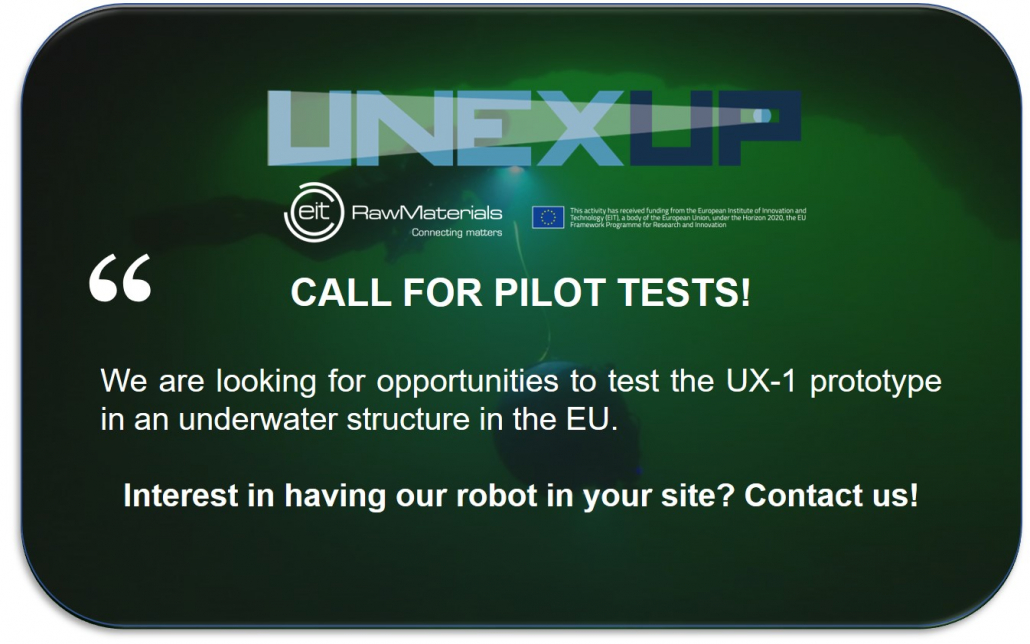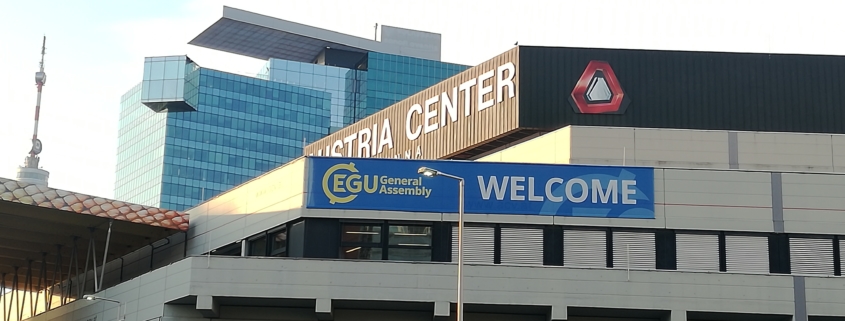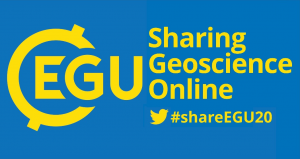ROBOMINERS Consortium Meeting with LPRC in Austria
The ROBOMINERS Consortium, in which LPRC participates, hosted its first in-person meeting in almost 2 years. Between the 16 and 18 of November 2021, the partners were in Leoben (Austria) to discuss the evolution of the project. LPRC members Luís Lopes and Márcio Tameirão represented the company in this event. ROBOMINERS’ innovative approach combines the creation of a new mining ecosystem with novel ideas from other sectors, in particular with the inclusion of disruptive concepts from robotics.
The first day of the meeting started with the review and updates on the various Work Packages (WPs) of the project. During this session, LPRC presented the work that is being implemented on WP8 – Active Roadmapping and Clustering, which the team leads. The previous work was analyzed and next steps were defined for the months to come. During the afternoon, the consortium was divided into different sessions. In one of this sessions, LPRC hosted an interactive Horizon Scanning Exercise (following a previous one) with the ROBOMINERS experts. This exercise aimed at analysing “hits” – aspects of relevance for the implementation of ROBOMINERS – and study how they can impact and be important for the continuation of the project. The results will now be processed by the LPRC team.
On the second day, the ROBOMINERS partners visited a mine in neighboring Slovenia – Mežica mine – which is under consideration for a test site location for the project’s demonstrations. On the third and final day, and back to Leoben, the project hosted its 2nd Clustering event entitled “The key technological obstacles towards a fully autonomous robotic mining (eco)system”, a Twinning Event organised between Leoben, Brussels and online. LPRC took part in the preparation of this Clustering event.
Follow the project developments on its website and social media channels!

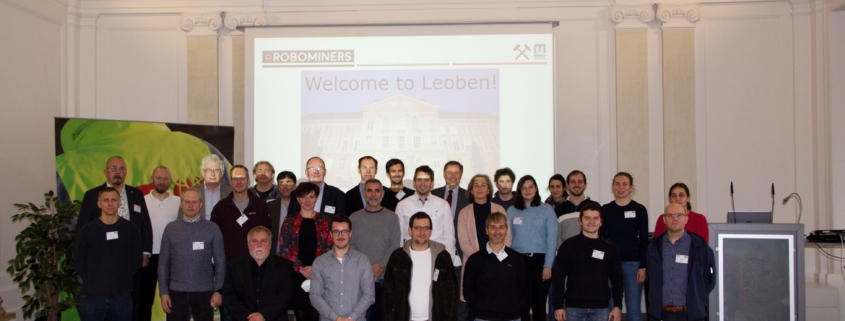 ROBOMINERS
ROBOMINERS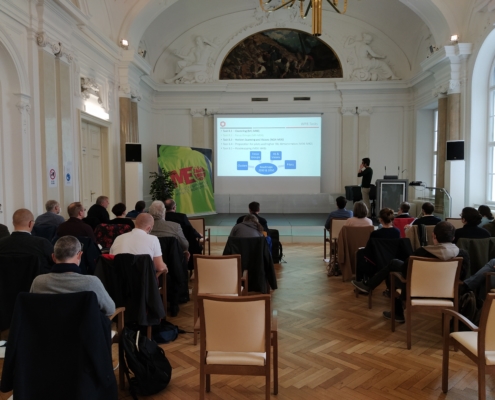
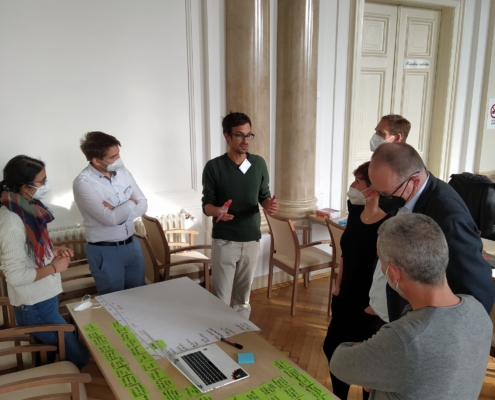
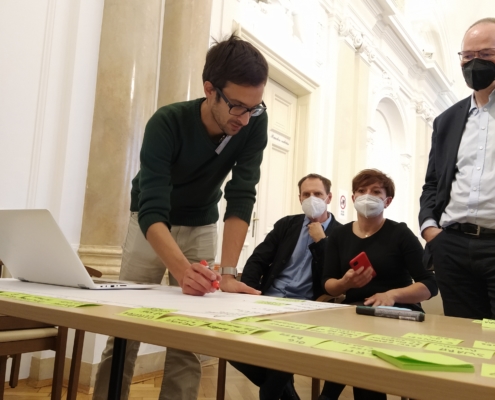
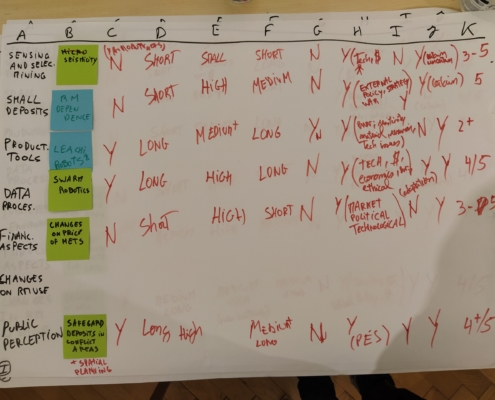
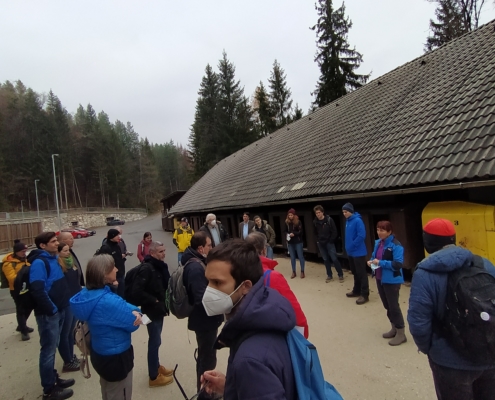
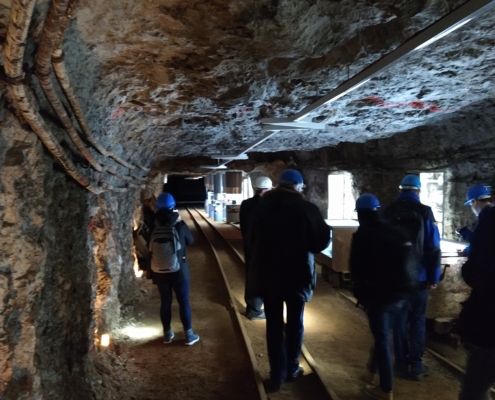
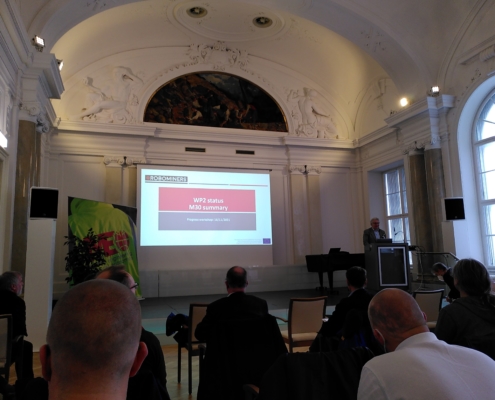
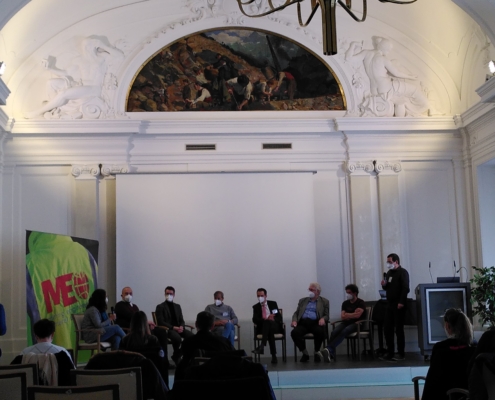
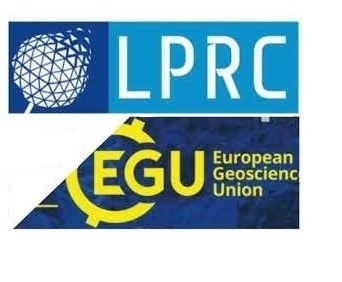
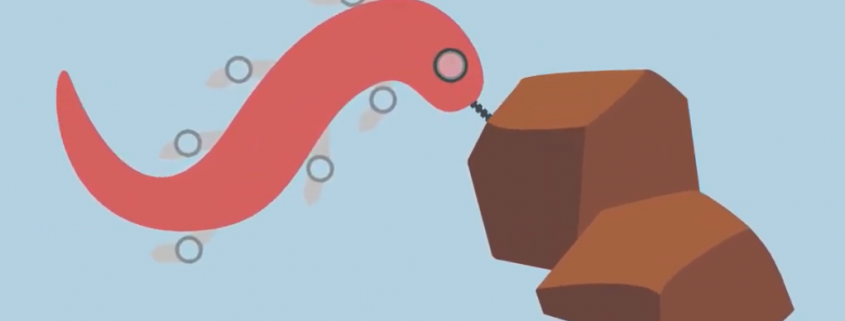 ROBOMINERS
ROBOMINERS